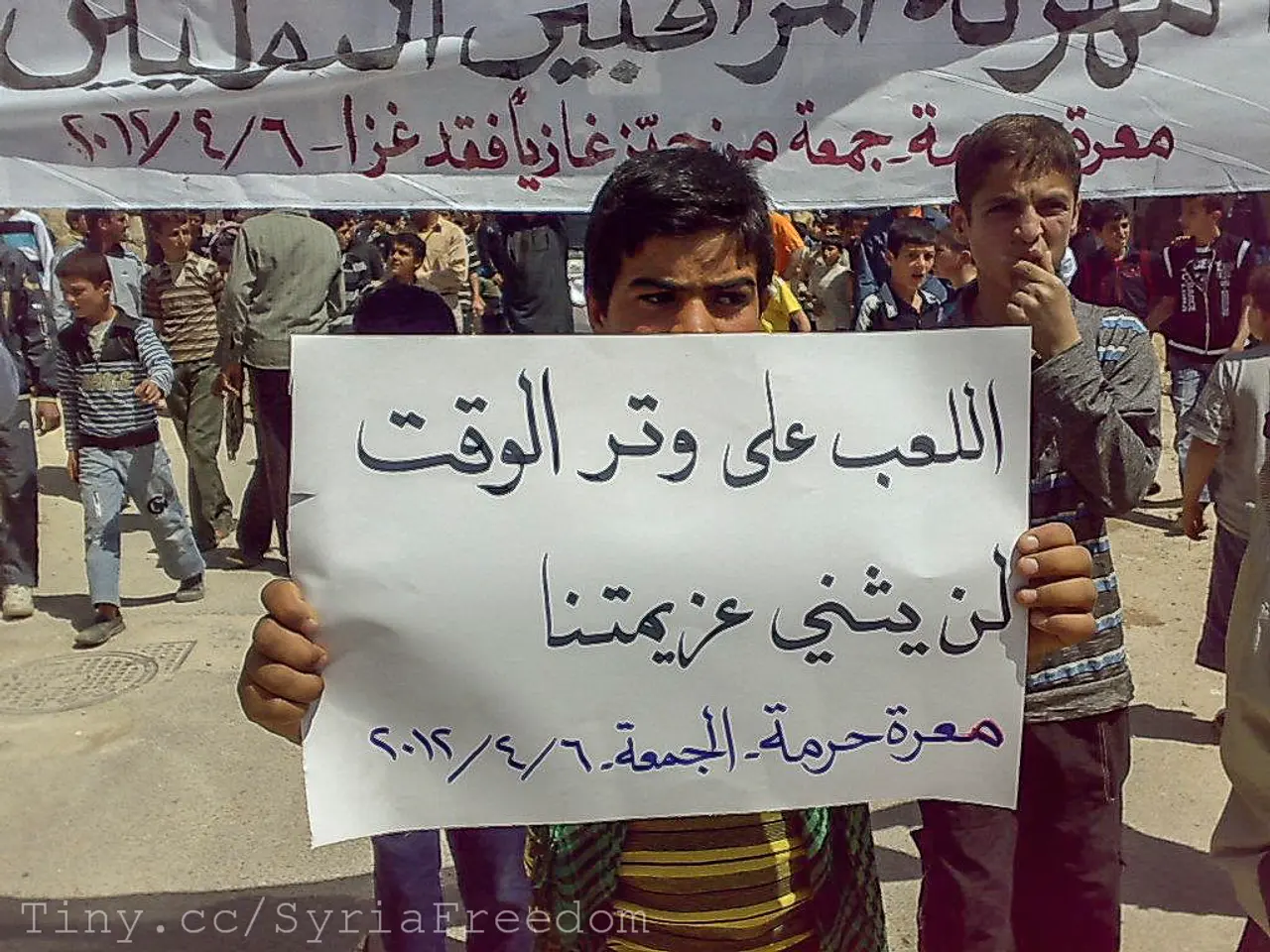Authorities Label Xenophobic Groups as Top Priorities following the Torre Pacheco Uprisings
In the wake of escalating xenophobic incidents and violent clashes in Torre Pacheco, Spain, the government has taken decisive action to combat hate crimes and restore public order.
The recent riots, sparked by an assault on a 68-year-old man, saw far-right extremist groups mobilise, resulting in several injuries, arrests, and heightened community tensions. Over 120 Civil Guard officers were deployed in Torre Pacheco to maintain security and prevent further violence.
Authorities have apprehended suspects involved in the assault, including a 19-year-old Moroccan citizen who is in preventive detention. Others suspected have been subjected to legal restrictions such as bail conditions and passport seizures.
The Minister of the Interior, Fernando Grande-Marlaska, has chaired an extraordinary meeting about the Action Plan against Hate Crimes, attended by several organisations, including the Independent Authority for Equal Treatment and Non-Discrimination, the Director General for Equal Treatment and Non-Discrimination and against Racism, and the president of the Spanish Federation of Municipalities and Provinces.
The Minister has also criticised "false saviors" who criminalise migrants and politicians who incite xenophobia and racism. He praised the Civil Guard and security forces for preventing incidents and detaining those involved in an "unacceptable" aggression in Torre Pacheco.
In response to the rise in hate crimes, the National Office for the Fight against Hate Crimes (ONDOD) will increase the frequency of its meetings from every six months to every three months. The State Secretariat for Security will prioritise analyzing and investigating xenophobic groups linked to national and international far-right movements.
The Centre for Coordination of Information on Radicalization (CCIR) will intensify its dissemination, allowing citizens to provide information on possible cases of radicalization. The Centre for Intelligence against Terrorism and Organized Crime (CITCO) will include hate crimes in its investigations and reinforce online monitoring.
A measure from the III Action Plan against Hate Crimes, originally scheduled for 2028, will be brought forward, involving the creation of a protocol for local police action in hate crimes.
Domingo, victim of the aggression that sparked the racist incidents in Torre Pacheco, expressed his feelings: "I wish it were just a bad dream".
Community engagement is also a key part of the government's strategy. Moroccan community leaders have called for calm and urged young people to avoid confrontation to lower tensions. Human rights organisations, immigrant groups, and unions are organising rallies and protests against racism, xenophobia, and hate crimes in Madrid and other cities.
Despite these challenges, Spanish authorities report a resolution rate of nearly 72 percent for hate crimes overall, indicating ongoing efforts to address such crimes systematically. However, the government remains vigilant about the risk of violence spreading to other areas and is committed to combating discrimination and xenophobia through law enforcement and community measures.
These steps reflect a multifaceted governmental approach combining law enforcement, community dialogue, and public condemnation intended to reduce hate crimes and improve social cohesion amid rising xenophobic tensions in Spain. The detainee is facing charges of inciting hatred, belonging to an illegal association to commit discriminatory crimes, and illegal possession of weapons. A total of 14 people have been detained so far for their involvement in the events related to the aggression in Torre Pacheco. The rally organised by ultra groups against the migrant population in Torre Pacheco resulted in a total of 23 complaints for possession of dangerous objects and public disorder. Fernando Grande-Marlaska has stated that it is our duty to denounce and prosecute those who attack and violate democratic and constitutional values by inciting hatred. Hate crimes decreased by 13.8% in Spain in 2024, according to a report to be published.
- The government's multifaceted approach to reducing hate crimes in Spain also involves engaging with social media platforms to monitor and address the spread of hate speech, as a part of efforts to improve general-news discourse and social cohesion.
- To further combat hate crimes, the government has announced a plan to work closely with entertainment industry leaders to promote positive representations of various cultures and backgrounds, aiming to challenge stereotypes and reduce prejudice on crime-and-justice issues.
- In an attempt to foster a more inclusive society, political leaders and key figures in Spanish politics have pledged to collaborate with general-news outlets to ensure balanced and fair coverage of social-media discussions and incidents, especially those involving crime, politics, and immigration.








